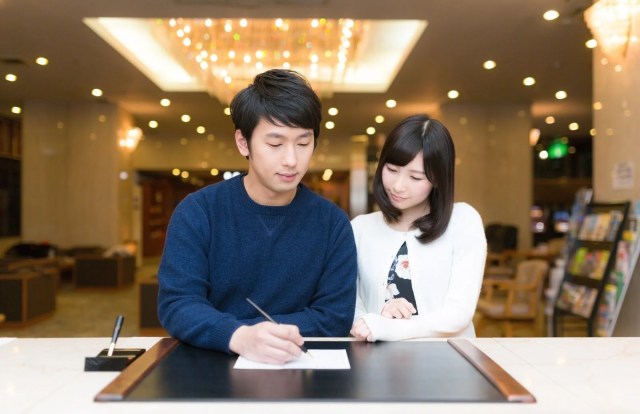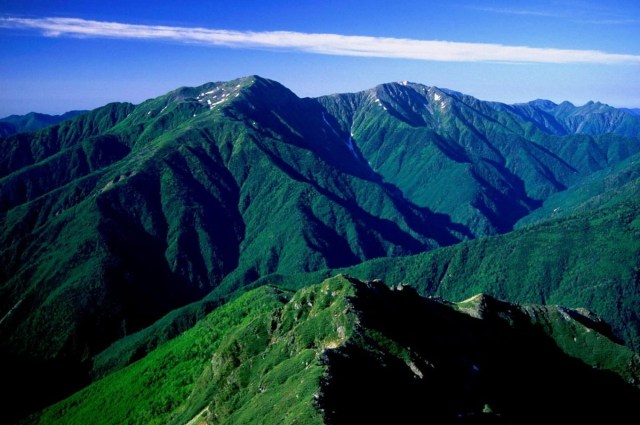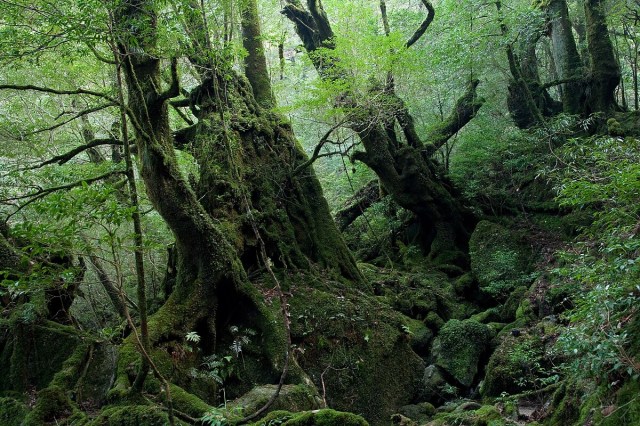
Wants plan completed in time to celebrate 100th anniversary of Japan’s national park system.
The Japanese travel sector is booming, and on Friday Prime Minister Fumio Kishida met with ministry heads to discuss plans to keep that momentum going. One of the ideas they’ve come up with though, is probably going to be divisive, as Kishida has said that the government will be pushing for the development of luxury resort hotels in all 35 of Japan’s national parks.
The plan comes in the wake of statistics showing that in the first half of 2024, Japan has received 17.7 million inbound foreign travelers, more than it has ever had for the period. However, the majority of that inbound tourism is concentrated in Tokyo, Osaka, and Kyoto, and the government wants to start funneling more tourism traffic to other parts of Japan.
In and of itself, attempting to shine a spotlight on more rural areas isn’t a bad idea. In addition to being Japan’s largest and third-largest cities, Tokyo and Osaka are also the major entry points for international flights into Japan. It’s not easy to convince foreign travelers to get off the plane in Tokyo or Osaka, then go to the trouble of hopping on a train and spending the time and money to transfer to a comparatively smaller big city, such as Nagoya or Kobe. If travelers are interested in the big-city experience in Japan, it stands to reason that they’re going to want to experience the biggest one they can. Since it’s going to be almost impossible to directly compete with the metropolitan marvel of Tokyo and Osaka, or the culturally dense temple-and-shrine-studded cityscape of Kyoto, it makes sense to try to promote places in Japan where the appeal is the exact opposite: natural beauty and tranquility.
▼ Minami Alps National Park, which straddles Nagano, Shizuoka, and Yamanashi prefectures
The question, though, becomes why do this by building luxury resorts at national parks? The obvious answer is because the Japanese government thinks foreign tourists can, and will, pay for luxuries while traveling in Japan. The yen is currently at a historic low versus foreign currencies, and that favorable-to-foreigners exchange rate has been translating to big spending, in yen terms, by inbound travelers. Ostensibly Kishida and the cabinet believe that national park scenery and luxury accommodations will be an attractive combination for foreign tourists, who won’t particularly mind, or perhaps even really notice, the high in-yen prices.
▼ Yakushima National Park in Kagoshima Prefecture
It’s worth noting that luxury lodging in rural areas isn’t a completely foreign concept in Japan. With so much of the population living in urban areas, an elegantly relaxing weekend in the countryside, particularly if the hotel has its own hot spring baths, has long been something that appeals to Japanese domestic travelers as well. Compared to, say, national parks in the U.S., national parks in Japan also tend to be more day-tripper-oriented, with many visitors staying in inns or hotels around the park perimeter rather than camping within park grounds.
However, a government-backed push to build new resorts in each and every one of the country’s national parks, specifically in order to capitalize on inbound foreign travelers with fat stacks of yen, may not go over so well at a time when average real wages for Japanese residents has been dropping for the last 26 months in a row, the worst slump in over 30 years. Nevertheless, Kishida says he would like to see the new luxury resorts up and running by 2031, the 100th anniversary of the formation of Japan’s national park system.
Source: Yahoo! Japan News/TV Tokyo Biz, TV Tokyo Biz, Nitele News
Top image: Pakutaso
Insert images: Wikipedia/Alpsdake, Wikipedia/Σ64
● Want to hear about SoraNews24’s latest articles as soon as they’re published? Follow us on Facebook and Twitter!



 Japanese government wants to encourage wealthy foreigners to travel deeper into Japan, NHK says
Japanese government wants to encourage wealthy foreigners to travel deeper into Japan, NHK says Japanese avoiding domestic travel as foreign tourists increase, possibly creating vicious cycle
Japanese avoiding domestic travel as foreign tourists increase, possibly creating vicious cycle Japanese prefectural governor wants foreign tourists to pay special extra fee
Japanese prefectural governor wants foreign tourists to pay special extra fee Japan just had its first same-month foreign tourist decrease in four years
Japan just had its first same-month foreign tourist decrease in four years Foreign tourists in Japan break inbound fall tourism record, are spending their money differently
Foreign tourists in Japan break inbound fall tourism record, are spending their money differently Viral Japanese cheesecake from Osaka has a lesser known rival called Aunt Wanda
Viral Japanese cheesecake from Osaka has a lesser known rival called Aunt Wanda Lawson adds doughnuts to its convenience store sweets range, but are they good enough to go viral?
Lawson adds doughnuts to its convenience store sweets range, but are they good enough to go viral? Japan Extreme Budget Travel! A trip from Tokyo to Izumo for just 30,000 yen [Part 2]
Japan Extreme Budget Travel! A trip from Tokyo to Izumo for just 30,000 yen [Part 2] Ramen for 99 yen?!? Best value-for-money noodles found at unlikely chain in Japan
Ramen for 99 yen?!? Best value-for-money noodles found at unlikely chain in Japan Drift ice in Japan is a disappearing winter miracle you need to see now
Drift ice in Japan is a disappearing winter miracle you need to see now The best Hobonichi diaries, covers and stationery for 2026
The best Hobonichi diaries, covers and stationery for 2026 Starbucks Japan releases first-ever Hinamatsuri Girls’ Day Frappuccino
Starbucks Japan releases first-ever Hinamatsuri Girls’ Day Frappuccino Potama serves up epic rice balls like no other, and there’s only one store in Tokyo
Potama serves up epic rice balls like no other, and there’s only one store in Tokyo Japan’s craziest burger chain takes menchi katsu to new extreme levels
Japan’s craziest burger chain takes menchi katsu to new extreme levels Japanese restaurant chain serves Dragon Ball donuts and Senzu Beans this spring
Japanese restaurant chain serves Dragon Ball donuts and Senzu Beans this spring Highest Starbucks in Japan set to open this spring in the Tokyo sky
Highest Starbucks in Japan set to open this spring in the Tokyo sky Tokyo Skytree turns pink for the cherry blossom season
Tokyo Skytree turns pink for the cherry blossom season Japan Extreme Budget Travel! A trip from Tokyo to Izumo for just 30,000 yen [Part 1]
Japan Extreme Budget Travel! A trip from Tokyo to Izumo for just 30,000 yen [Part 1] Yakuzen ramen restaurant in Tokyo is very different to a yakuza ramen restaurant
Yakuzen ramen restaurant in Tokyo is very different to a yakuza ramen restaurant Japan has only one airport named after a samurai, so let’s check out Kochi Ryoma【Photos】
Japan has only one airport named after a samurai, so let’s check out Kochi Ryoma【Photos】 Japanese drugstore sells onigiri at pre-stupid era prices, but how do they compare to 7-Eleven?
Japanese drugstore sells onigiri at pre-stupid era prices, but how do they compare to 7-Eleven? Adorable Totoro acorn key holders come with a special guest hidden inside[Photos]
Adorable Totoro acorn key holders come with a special guest hidden inside[Photos] Japan’s newest Shinkansen has no seats…or passengers [Video]
Japan’s newest Shinkansen has no seats…or passengers [Video] Starbucks Japan releases new sakura goods and drinkware for cherry blossom season 2026
Starbucks Japan releases new sakura goods and drinkware for cherry blossom season 2026 Foreigners accounting for over 80 percent of off-course skiers needing rescue in Japan’s Hokkaido
Foreigners accounting for over 80 percent of off-course skiers needing rescue in Japan’s Hokkaido Super-salty pizza sends six kids to the hospital in Japan, linguistics blamed
Super-salty pizza sends six kids to the hospital in Japan, linguistics blamed Starbucks Japan unveils new sakura Frappuccino for cherry blossom season 2026
Starbucks Japan unveils new sakura Frappuccino for cherry blossom season 2026 Foreign tourists in Japan will get free Shinkansen tickets to promote regional tourism
Foreign tourists in Japan will get free Shinkansen tickets to promote regional tourism The 10 most annoying things foreign tourists do on Japanese trains, according to locals
The 10 most annoying things foreign tourists do on Japanese trains, according to locals Take a trip to Japan’s Dododo Land, the most irritating place on Earth
Take a trip to Japan’s Dododo Land, the most irritating place on Earth Naruto and Converse team up for new line of shinobi sneakers[Photos]
Naruto and Converse team up for new line of shinobi sneakers[Photos] Is China’s don’t-go-to-Japan warning affecting the lines at a popular Tokyo gyukatsu restaurant?
Is China’s don’t-go-to-Japan warning affecting the lines at a popular Tokyo gyukatsu restaurant? Survey asks foreign tourists what bothered them in Japan, more than half gave same answer
Survey asks foreign tourists what bothered them in Japan, more than half gave same answer Japan’s human washing machines will go on sale to general public, demos to be held in Tokyo
Japan’s human washing machines will go on sale to general public, demos to be held in Tokyo Starbucks Japan releases new drinkware and goods for Valentine’s Day
Starbucks Japan releases new drinkware and goods for Valentine’s Day We deeply regret going into this tunnel on our walk in the mountains of Japan
We deeply regret going into this tunnel on our walk in the mountains of Japan Studio Ghibli releases Kodama forest spirits from Princess Mononoke to light up your home
Studio Ghibli releases Kodama forest spirits from Princess Mononoke to light up your home Major Japanese hotel chain says reservations via overseas booking sites may not be valid
Major Japanese hotel chain says reservations via overseas booking sites may not be valid Put sesame oil in your coffee? Japanese maker says it’s the best way to start your day【Taste test】
Put sesame oil in your coffee? Japanese maker says it’s the best way to start your day【Taste test】 No more using real katana for tourism activities, Japan’s National Police Agency says
No more using real katana for tourism activities, Japan’s National Police Agency says Foreign tourists spending at Japanese department stores dropping rapidly, study says
Foreign tourists spending at Japanese department stores dropping rapidly, study says Fewer Japanese people traveling domestically, government blames birth rate, others blame foreign crowds, costs
Fewer Japanese people traveling domestically, government blames birth rate, others blame foreign crowds, costs The top 10 things foreign tourists visiting Japan want to do during Golden Week
The top 10 things foreign tourists visiting Japan want to do during Golden Week Japanese government wants to remove tax-exemption limit for foreign tourists on consumables
Japanese government wants to remove tax-exemption limit for foreign tourists on consumables International tourists travel to Japan, spend big at top tourist spots in Tokyo
International tourists travel to Japan, spend big at top tourist spots in Tokyo More foreign tourists than ever before in history visited Japan last month
More foreign tourists than ever before in history visited Japan last month Foreign tourists outnumber Japanese ones at Kyoto hotels for first time ever
Foreign tourists outnumber Japanese ones at Kyoto hotels for first time ever Brand-new theme park in Japan charges foreign tourists 25 percent more than locals for tickets
Brand-new theme park in Japan charges foreign tourists 25 percent more than locals for tickets New Tokyo restaurant charges higher prices to foreign tourists than Japanese locals
New Tokyo restaurant charges higher prices to foreign tourists than Japanese locals Kyoto experiencing problems with foreign tourists not paying for bus fares, but not on purpose
Kyoto experiencing problems with foreign tourists not paying for bus fares, but not on purpose Tokyo’s famous Lost in Translation hotel is closed
Tokyo’s famous Lost in Translation hotel is closed Taipei introduces taxi tours and 24-hour toll-free interpretation services for foreign tourists
Taipei introduces taxi tours and 24-hour toll-free interpretation services for foreign tourists Japan set to introduce new entry system for foreign tourists
Japan set to introduce new entry system for foreign tourists Japanese government freezes inbound air reservations for foreign residents and Japanese citizens
Japanese government freezes inbound air reservations for foreign residents and Japanese citizens Foreign tourists react to mask-wearing in Japan, and Japanese people react to foreign non-maskers
Foreign tourists react to mask-wearing in Japan, and Japanese people react to foreign non-maskers Japan ends travel ban on individual tourists, waives visa requirements for certain countries
Japan ends travel ban on individual tourists, waives visa requirements for certain countries